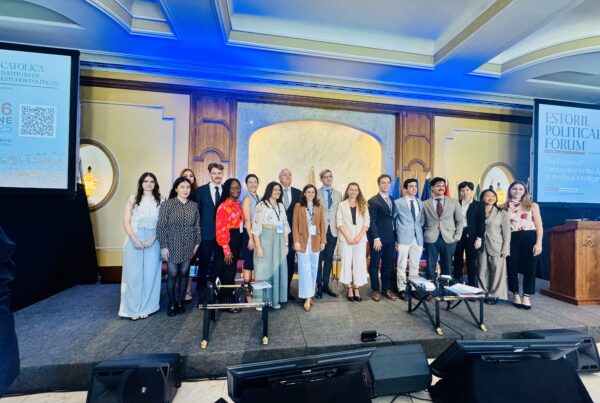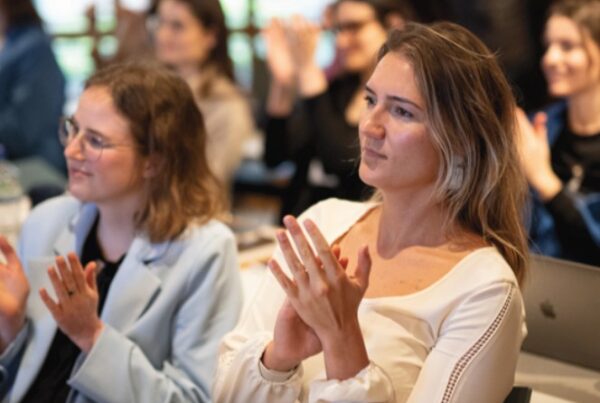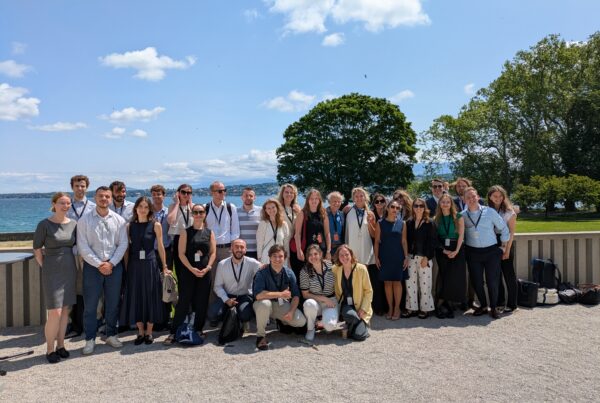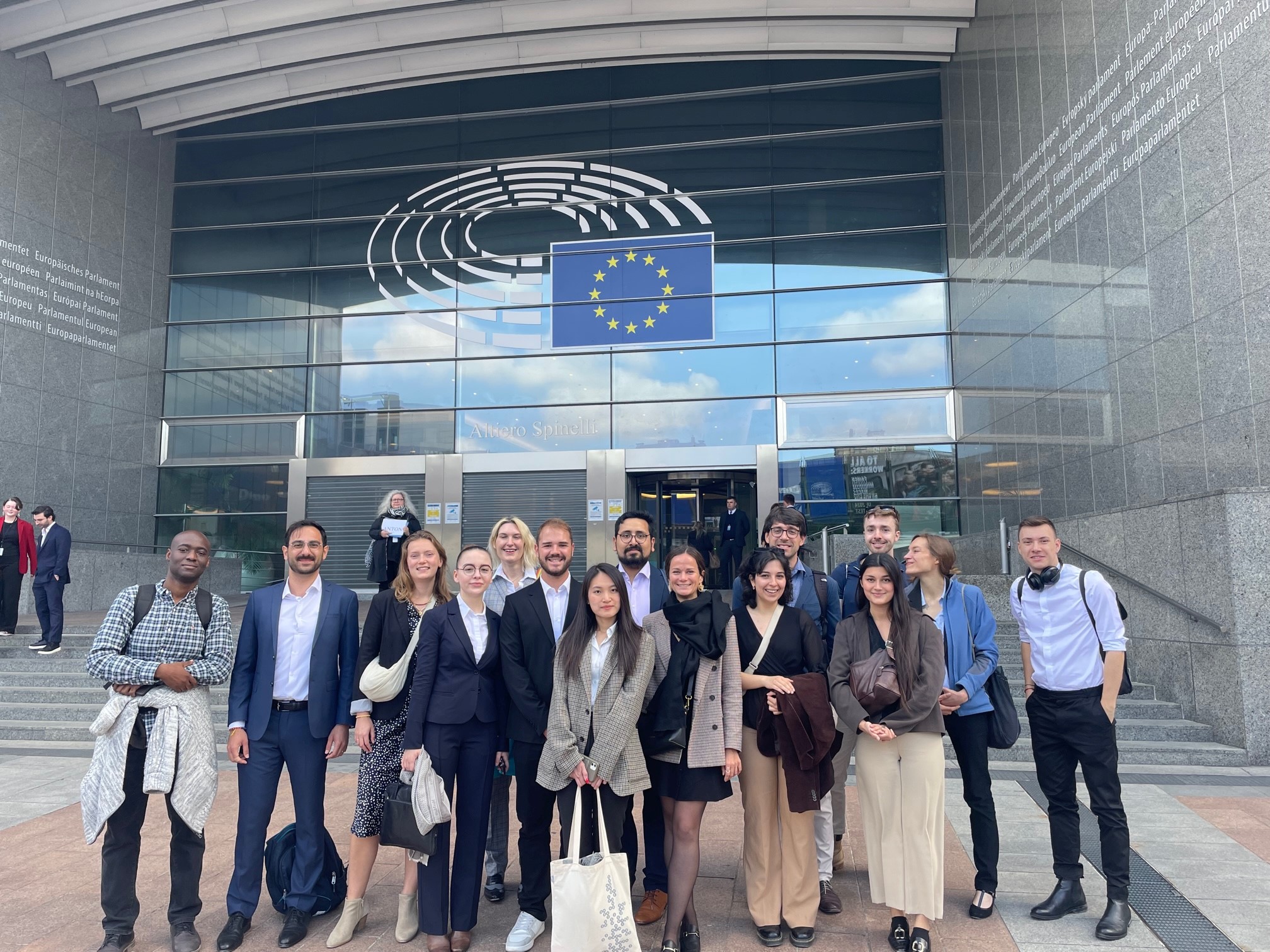
Brussels Policy Seminar: Participation in Policymaking
22-25 May 2023 | Brussels, Belgium
This year’s Brussel’s Policy Seminar (22-25 May 2023) focused on participation in policy making. Run in co-operation with the European Parliament Research Services, the Centre for European Policy Studies (CEPS), and Agora Citizen Assembly, it addressed questions about how and when the public voice gets into policy making. Over three days, we examined three distinct models of participation enjoying intense discussion and lively debate with their representatives.
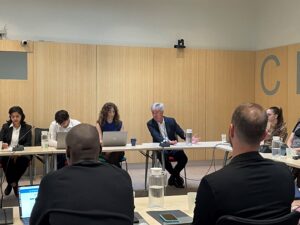
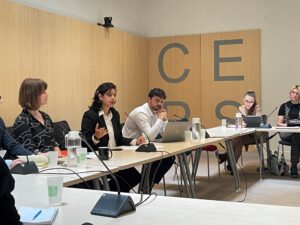
On Day 1, we met the CEPS team where Karel Lannoo, CEO of CEPS, welcomed us by sharing the Centre’s history and the ethos underpinning its mission. In an age of disinformation, Mr Lannoo stressed the value of data-driven policy analysis. He believed that while most think tanks were ideologically positioned and inclined toward advocacy, the quality of CEPS’ work lay in its commitment to producing accurate intelligence and insight that is not driven by party agendas. A panel followed moderated by Dylan Macchiarini Crosson, Researcher, Foreign Policy Unit, with Paula Gurtler, Research Assistant, GRID unit, Davide Colombi, Research Assistant, Justice and Home Affairs Unit, Shagofah Ghafori, Project Development Assistant, Project and Development Office, CEPS discussing their flagship Young Thinkers project through which they hope to promote greater diversity within CEPS. This led to a wider discussion on diversity across the policy making ecology. When they described their working lives, they all acknowledged greater sensitivity toward the limitations of data. Leaving CEPS, we trekked to our adopted workshop space for the week, a former airbus repurposed and repositioned in the centre of Brussels by Captain Alain Loiseau. Here, in the heart of the plane, we discussed the problems of upholding neutrality and objectivity in think tanks so deeply embedded in the Brussels bubble alongside the challenge of realising socio-economic as well as ethnic diversity.
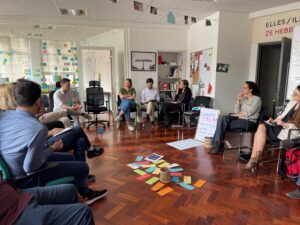
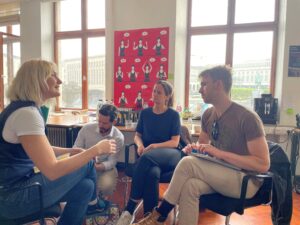
Day 2 saw us connect with the team from Agora, the first citizen assembly project of its kind in Brussels. Ana Adzerson (an Agora facilitator) and Pepijn Kennis (the Agora member of parliament) opened by describing the roots of the project and outlining their processes of recruiting, organising discussion and facilitating decision making. They had also invited a former participant (“Neil”) who illustrated the experience. Here again ensuring diversity was a high priority. Pepijn explained how Agora’s model had adjusted to accommodate people without fixed addresses, while Ana spoke of the intimate relationship building the Agora team did with each participant. In terms of their practice, they highlighted the importance of embracing multilingualism (including minority languages) and including forms of non-verbal forms of expression (such as graphic visualisation or physical pedagogies like ‘shuffling feet’) in maximising communication. They shared with us their ‘consent not consensus’ approach which allowed people to accept with reservation rather than having to choose between wholeheartedly agreeing or disagreeing to a proposal. Finally, Pepijn spoke of his role of translating and infusing the assembly’s resolutions into parliamentary resolutions.
During our reflections back on the ‘plane’, several students expressed their belief that while the Agora model was intriguing, they had some reservations. They raised the question of whether Agora’s clear commitment to direct, participatory democracy could ever be compatible with the parliamentary system they were trying to work with. Pepijn’s role was portrayed by himself as high pressured. Students perceived the role as very dependent on the integrity and capacity of the individual in it. To have impact, Agora wanted to scale up, but there was some doubt among students as to whether their current model was suitable for that. There was a general consensus among the students that in order to work it would require the presence of more elected parliamentary representatives. And that, as multiple of them believed that this was not something existing parties seemed willing to take on, it would require fielding independent candidates—an expensive and uncertain enterprise. However, others noted that it could be plausible, from the perspective of the regional parliament, to muster support for an autonomous but infrequent citizen assembly with powers to propose referendums, though they admitted that it seems quite far from the democratisation of democracy that Agora wants.
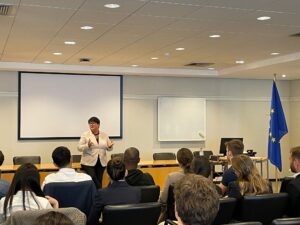
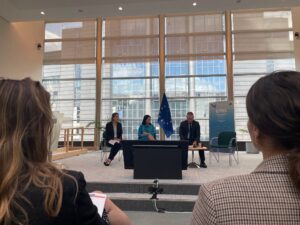
On Day 3, we concluded our investigation with a visit to the European Parliament kindly facilitated by Joanna Apap, Administrative Manager in charge of Outreach and Strategic Liaison with Academia, European Parliamentary Research Service (EPRS). We began with a brief visit to the European House of History before a welcome from Joanna and Anders Rasmussen, the Deputy Secretary-General of the European Parliament and Director General of the European Parliamentary Research Service. An aspect of this talk was the differentiation between the research work of the EPRS and a think tank like CEPS. EPRS analysts could not make recommendations or amendments, they could only provide information in response to a specific request or indicate if and where similar policies had been implemented, how, and to what effect. We went on to watch a Policy Talk—one of the parliament’s weekly open public consultation sessions—on EU policy on reducing antibiotic resistance.
In the afternoon, we were addressed by Sabine Verheyen MEP, chair of the Culture and Education Committee, who explained the Committee’s focus on promoting youth participation in European politics while also illuminating how her own committee operated within the parliament’s ecology of MEPs, working groups, and researchers. This was followed by a panel of EPRS analysts. Taaja Laaninen, Policy Analyst, Structural Policies Unit, outlined recent activities in promoting youth political participation. Magdalena Pasikowska-Schnass, Policy Analyst, Structural Policies Unit, spoke on European identity. Silvia Kotanidis, Policy Analyst, Citizens Policies Unit, discussed the challenges of engaging young people with the EU.
The session provoked lively debate. Some students were concerned that the sheer gigantism involved in organising so many members’ representatives produced a system too complicated to function well. The limitations of the parliament’s power in relation to the European member’s council was pointed out. Was the European ideal just a fractious alliance or was it something more? The notion of European identity was also questioned by two students—on the one hand it offered an important resource for persecuted minorities (the example of the LGBTQ+ community in Poland was offered), on the other it was noted how each nation held ‘European’ in its own image distinct from the one projected from Brussels or Strasbourg.
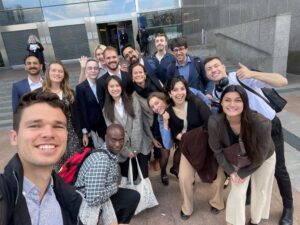
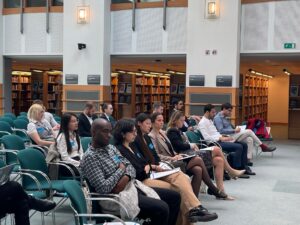
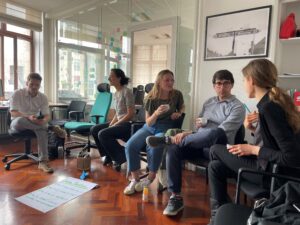
Debate and plurality of opinion is always at the heart of our events and this seminar proved especially successful on this score. A huge thanks to Joanna Apap at EPRS, Andrea Bittnerova at CEPS, and Ana Adzersen at Agora for their amazing efforts in co-organising and facilitating, and a big congratulations to all our students for making the week truly memorable.

